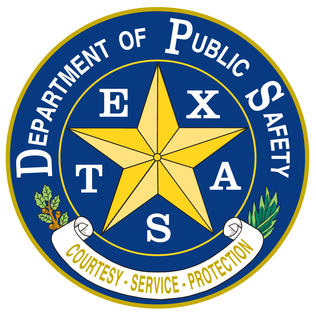
The Federal Bureau of Investigation (FBI) is the domestic intelligence and security service of the United States and its principal federal law enforcement agency. An agency of the United States Department of Justice, the FBI is also a member of the U.S. Intelligence Community and reports to both the Attorney General and the Director of National Intelligence. A leading U.S. counterterrorism, counterintelligence, and criminal investigative organization, the FBI has jurisdiction over violations of more than 200 categories of federal crimes.
The Criminal Investigation Department (CID) is the branch of a police force to which most plainclothes detectives belong in the United Kingdom and many Commonwealth nations. A force's CID is distinct from its Special Branch. The name derives from the CID of the Metropolitan Police, formed on 8 April 1878 by C. E. Howard Vincent as a re-formation of its Detective Branch. British colonial police forces all over the world adopted the terminology developed in the UK in the 19th and early 20th centuries, and later the police forces of those countries often retained it after independence. English-language media often use "CID" as a translation to refer to comparable organisations in other countries.

The Counterterrorism Division (CTD) is a division of the National Security Branch of the Federal Bureau of Investigation. CTD investigates terrorist threats inside the United States, provides information on terrorists outside the country, and tracks known terrorists worldwide. In the wake of the September 11 attacks in 2001, CTD's funding and manpower have significantly increased.

The United States Naval Criminal Investigative Service (NCIS) is the primary investigative law enforcement agency of the U.S. Department of the Navy. Its primary function is to investigate major criminal activities involving the Navy and Marine Corps, though its broad mandate includes national security, counterintelligence, counterterrorism, cyberwarfare, and the protection of U.S. naval assets worldwide. NCIS is the successor organization to the former Naval Investigative Service (NIS), which was established by the Office of Naval Intelligence after the Second World War.
The Critical Incident Response Group (CIRG) is a division of the Criminal, Cyber, Response, and Services Branch of the United States Federal Bureau of Investigation. CIRG enables the FBI to rapidly respond to, and effectively manage, special crisis incidents in the United States.

The Department of Public Safety of the State of Texas, commonly known as the Texas Department of Public Safety (DPS), is a department of the state government of Texas. The DPS is responsible for statewide law enforcement and driver license administration. The Public Safety Commission oversees the DPS. However, under state law, the Governor of Texas may assume command of the department during a public disaster, riot, insurrection, formation of a dangerous resistance to enforcement of law, or to perform his constitutional duty to enforce law. The commission's five members are appointed by the governor and confirmed by the Texas Senate, to serve without pay for staggered, six-year terms. The commission formulates plans and policies for enforcing criminal, traffic and safety laws, preventing and detecting crime, apprehending law violators, and educating citizens about laws and public safety.

The National Security Branch (NSB) is a service within the Federal Bureau of Investigation. The NSB is responsible for protecting the United States from weapons of mass destruction, acts of terrorism, and foreign intelligence operations and espionage. The NSB accomplishes its mission by investigating national security threats, providing information and analysis to other law enforcement agencies, and developing capabilities to keep the US nation secure.

The National Bureau of Investigation is an agency of the Philippine government under the Department of Justice, responsible for handling and solving major high-profile cases that are in the interest of the nation.
The Australian Intelligence Community (AIC) and the National Intelligence Community (NIC) or National Security Community of the Australian Government are the collectives of statutory intelligence agencies, policy departments, and other government agencies concerned with protecting and advancing the national security and national interests of the Commonwealth of Australia. The intelligence and security agencies of the Australian Government have evolved since the Second World War and the Cold War and saw transformation and expansion during the Global War on Terrorism with military deployments in Afghanistan, Iraq and against ISIS in Syria. Key international and national security issues for the Australian Intelligence Community include terrorism and violent extremism, cybersecurity, transnational crime, the rise of China, and Pacific regional security.

The director of the Federal Bureau of Investigation is the head of the Federal Bureau of Investigation, a United States federal law enforcement agency, and is responsible for its day-to-day operations. The FBI director is appointed for a single 10-year term by the president of the United States and confirmed by the Senate. The FBI is an agency within the Department of Justice (DOJ), and thus the director reports to the attorney general of the United States.
The Criminal Justice Information Services Division is a division of the United States Federal Bureau of Investigation (FBI) located in Clarksburg, Harrison County, West Virginia. The CJIS was established in February 1992 and is the largest division in the FBI.
Joseph M. Demarest, Jr. is an associate executive assistant director of the Federal Bureau of Investigation (FBI), and was formerly the assistant director in charge of the FBI's cyber division. He is responsible for the FBI's operations to protect the United States from cyber-based national security threats.

The Federal Investigation Agency is a border control, criminal investigation, counter-intelligence and security agency under the control of the Interior Secretary of Pakistan, tasked with investigative jurisdiction on undertaking operations against terrorism, espionage, federal crimes, smuggling as well as infringement and other specific crimes.

Gordon M. Snow was an Assistant Director of the FBI over the Cyber Division through 2012, the FBI Director of Counterintelligence for the Middle East in 2001, and currently directs Global Security Operations for Cleveland Clinic.

United States Army Counterintelligence (ACI) is the component of United States Army Military Intelligence which conducts counterintelligence activities to detect, identify, assess, counter, exploit and/or neutralize adversarial, foreign intelligence services, international terrorist organizations, and insider threats to the United States Army and U.S. Department of Defense (DoD).
The Criminal, Cyber, Response, and Services Branch (CCRSB) is a service within the Federal Bureau of Investigation (FBI). The CCRSB is responsible for investigating financial crime, white-collar crime, violent crime, organized crime, public corruption, violations of individual civil rights, and drug-related crime. In addition, the Branch also oversees all computer-based crime related to counterterrorism, counterintelligence, and criminal threats against the United States.

The Science and Technology Branch (STB) is a service within the Federal Bureau of Investigation that comprises three separate divisions and three program offices. The goal when it was founded in July 2006 was to centralize the leadership and management of the three divisions. The mission of the STB is discover, develop, and deliver innovative science and technology so that intelligence and innovative investigation is enhanced.

The Counterintelligence Division (CD) is a division of the National Security Branch of the Federal Bureau of Investigation. The division protects the United States against foreign intelligence operations and espionage. It accomplishes its mission of hunting spies and preventing espionage through the use of investigation and interaction with local law enforcement and other members of the United States Intelligence Community. In the wake of the September 11, 2001 attacks, the division's funding and manpower have significantly increased.

The Cyber Division (CyD) is a Federal Bureau of Investigation division which heads the national effort to investigate and prosecute internet crimes, including "cyber based terrorism, espionage, computer intrusions, and major cyber fraud." This division of the FBI uses the information it gathers during investigation to inform the public of current trends in cyber crime. It focuses around three main priorities: computer intrusion, identity theft, and cyber fraud. It was created in 2002.

Sean M. Joyce was the 14th Deputy Director of the Federal Bureau of Investigation.














